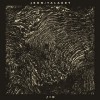 Maximalism is in vogue for electronic musicians right now. With the rise of commercialized dubstep (aka "brostep"), this trend is unlikely to be reversed in 2012. Luckily, John Talabot is making fantastically balanced, listenable dance music a bit left of center; his debut album, ƒIN, downplays the genre's current above-ground trends in favor of his own nuanced production.
Maximalism is in vogue for electronic musicians right now. With the rise of commercialized dubstep (aka "brostep"), this trend is unlikely to be reversed in 2012. Luckily, John Talabot is making fantastically balanced, listenable dance music a bit left of center; his debut album, ƒIN, downplays the genre's current above-ground trends in favor of his own nuanced production.
As near as I can tell, Daft Punk's hyperbolic live shows in 2007 were a zeitgeist-defining moment, setting the tone for five years of dance music both rewarding (Flying Lotus and the Brainfeeder scene, Underworld's slept-on Barking, Orbital's return to the stage) and laughably overwrought (Justice, Deadmau5, Skrillex, et al.). Dance music is, by its very nature, a track-oriented scene, with songs sculpted for maximum impact in three or four minutes within a club setting, where hard-hitting structures make perfect sense. For those who prefer digesting their music at home, on headphones instead of in between sweaty, thrashing bodies, electronic music that fires on all cylinders can wear out its welcome quickly.
To that end, Barcelona-based musician John Talabot has crafted a full-length debut that strikes an elegant, elusive balance between danceable energy and relaxed home listening. Talabot has been producing remixes for a few years now, deconstructing well-known songs by the xx, Delorean, Glasser, Shit Robot, Teengirl Fantasy, and others. His first album under this pseudonym, ƒIN—French for "the end"—has already raised his profile a good bit in dance music circles. The good news is that ƒIN lives up to the hype: it's a stunning piece of work, elegantly composed, tailored for repeat plays, and the best electronic album I've yet heard this year. Talabot's ear for stacking simple melodies on top of one another like Legos, building emotional impact with precision, was pioneered by acts like Orbital in the '90s. I can't recall the last time I've heard the concept executed this sharply.
Lead track "Depak Ine" doesn’t immediately charge out of the gate; rather, it's a seven-minute slow-burner that incorporates nature samples—check the frogs croaking in place of the would-be "chorus"—and enough atmosphere to make Christoph Heemann jealous. (Well, maybe not quite.) While not aggressive, the tempo and rhythm are significant enough for "Depak Ine" to revitalize any 3:00 AM dance-floor. Pional's echoed vocals on the next track, "Destiny," recall Noah Lennox's reverbed chants on Merriweather Post Pavilion and Tomboy, minus the all-colors-bleeding production that sank Merriweather's replayability faster than the Titanic.
As ƒIN progresses, Talabot shows his versatility. "Journeys" incorporates a sun-kissed, summery vibe, layering guest vocals from Delorean frontman Ekhi Lopetegi atop a Caribbean melody. The chopped-up vocals and synths on "Last Land" shoot the album's upbeat nature into the clouds; the track pauses for a breath midway through, only to return with a heartstring-tugging key change set against the primary melody. "When the Past Was Present" is the album's secret weapon, with a groove reminiscent of New Order's flawless run of singles on Substance; halfway through, a laser-beam note of distorted, echoed guitar cuts through the din (think "True Faith") and takes the song's emotional impact to the next level.
It's hard to find fault with ƒIN. If anything, though, several of these tracks could stand to be lengthened. Only two cross the five-minute mark—the opening and closing tracks, naturally—as ƒIN is clearly tailored to our iPod Shuffle ADHD generation. At a meager three minutes, "El Oeste" winds down a whole lot quicker than it should; its locked-groove rhythm is the most hypnotic thing on the album by a mile, so when it ends abruptly, its impact is somewhat lessened. Likewise, "Estiu" builds tension as effectively as possible in three minutes, but ultimately has its hands tied by its quick ending. If Talabot would have doubled the length of a few of these tracks, I think the album would be improved—if just barely.
Many of my favorite electronic artists aren't afraid to stretch out their songs, playing to their strengths ad infinitum, from Tangerine Dream's hot streak in the early '70s to Orbital's sprawling masterpiece In Sides. Let's hope Talabot does the same going forward; several of the songs on ƒIN are begging for such treatment. Closing track "So Will Be Now..." magnifies the preceding tracks' thirst for running time; it tops out at seven minutes with not a second wasted, weaving a rubbery bass line and soulful vocal samples into a hypnotic web of prog-house, closing ƒIN on its high water mark. Despite its occasional self-imposed restrictions with regard to song length, ƒIN gets my vote for the best electronic album of 2012 to date.
Samples:
Read More


